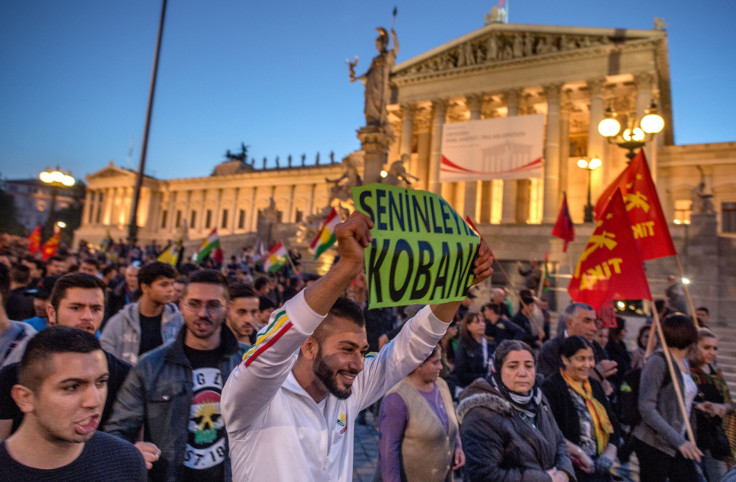ISIS In Austria: Salah Abdeslam Stopped By Nation With Islamic State History

Police released more information Tuesday about one of the suspects who was linked to Friday's terror attacks in Paris -- and was still on the run. Austria's interior minister, Johanna Mikl-Leitner, revealed that Salah Abdeslam, 26, was stopped at a checkpoint in northern Austria in September. He told law enforcement he'd driven into the country from Germany and was there on vacation, Reuters reported. An investigation was ongoing.
The announcement wasn't Austria's first brush with the Islamic State group, the militants who claimed responsibility for the Paris massacre that left about 130 people dead last week. More than 140 Austrian nationals have joined ISIS over the past few years, many of them young and female, Al Jazeera reported.
The legend of the "jihadi child bride," where the extremists use the Internet to recruit girls to come to Syria and marry them, may have begun there. Sabina Selimovic, 15, and Samra Kesinovic, 16, left Vienna for Syria in April 2014 and later became "poster girls for ISIS." The Telegraph reported they posted photos of themselves wearing black burkas and carrying weapons. At least one of the girls became pregnant, and one died in battle last September.
Afterward, Austria began to crack down on ISIS supporters. This past June, a court there convicted nine Chechen people between the ages of 18 and 28 for belonging to a terrorist organization after arresting them en route to Syria. In October, three Chechen refugees were sentenced to about two years in prison each for attempting to join ISIS. “The main problem is about people coming back to Austria,” interior ministry spokesman Karl-Heinz Grundboeck told the New York Post last year. “Once they leave, it is almost impossible.”
The recruitment hasn't stopped Austrian officials from speaking out about the militants, who released a video in August encouraging its supporters there to carry out lone-wolf attacks on "unbelievers" if they couldn't get to Iraq or Syria. In September, Foreign Minister Sebastian Kurz told reporters he thought the U.S.-led coalition fighting ISIS should work with Syrian President Bashar Assad, whose regime has been accused of corruption. Kurz said it was a commonsense approach.
"One should not forget the crimes that Assad has committed, but also not forget the pragmatic view of the fact that in this fight we are on the same side," he added, according to the Independent.
© Copyright IBTimes 2024. All rights reserved.












